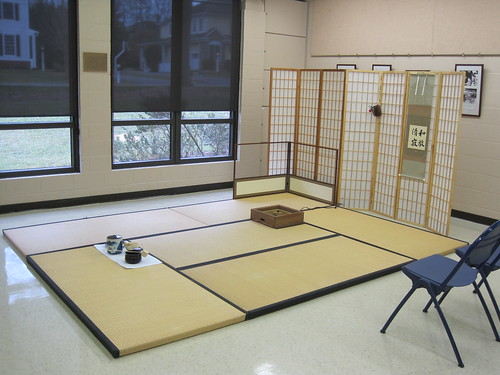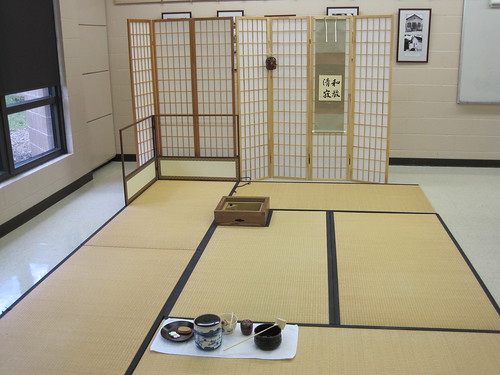Last Sunday, the Tankokai held a refresher course for those who have been without Tea for these many months and who fear they have forgotten everything they know.
 |
| Not fifteen minutes ago, this room had nothing but chairs in it. |
There are currently no available tea rooms in the DC area, but the Tankokai has a tea room that fits, piled high, in the back of an SUV. We had a room rented at the McLean Community Center, and at the appointed time this tea-room-in-an-SUV drove up to the entrance. The six students and two teachers rapidly brought everything, tatami by tatami and utensil by utensil, into the room.
And then, BOOM! Instant tea room.
I think the thing that impressed me the most was the sunken hearth of the ro season, which was only sunken a few inches but managed to pull off the recessed look despite sticking up out of the ground.
 |
| The horizontal black line near the bottom of the image is in fact an invisible wall. There is an invisible door at the spot where the black line ends on the left. |
I performed the first Tea of the day, and was greatly relieved to find that I had not forgotten as much as I had expected. Everything felt quite natural and ordinary within this instant room, except for the act of sitting on the floor and making the three motions necessary to first open and then close a rice paper door. (As you can see, the door was invisible.) This felt especially odd when the teacher corrected me for holding the door from too high a position.
I'm looking forward to the new Tea school opening later this spring. Until then, I should try making do with my own partially imaginary rooms.